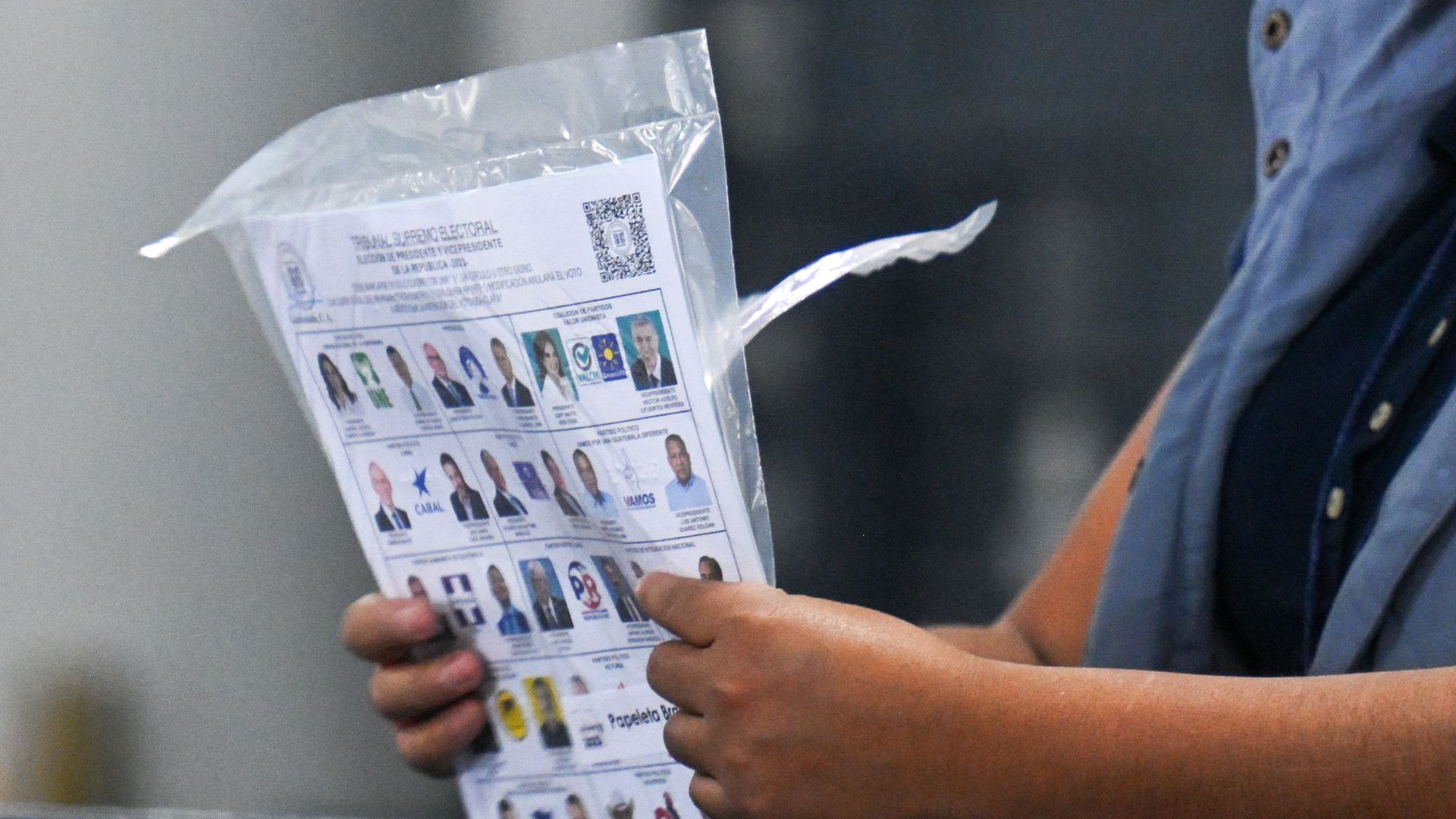Guatemalan elections test country's troubled democracy
Add Axios as your preferred source to
see more of our stories on Google.

The presidential ballots for Sunday being packaged for distribution in Guatemala City, June 20. Photo: Johan Ordóñez/AFP via Getty Images
Guatemala's young democracy will be further tested during Sunday's elections, which experts say have been plagued by illegal use of government funds and secretive rulings on which candidates qualify to run.
What to know: Guatemalans will also choose 160 members of Congress, 340 mayors and 20 representatives to the Central American Parliament amid what human rights experts say is a democratic backsliding that includes widespread corruption in the country's main institutions.
- Current President Alejandro Giammattei, a conservative, cannot run for re-election.
- Polls show the leading candidates are former Congress member Zury Ríos, the far-right daughter of a past dictator, former first lady Sandra Torres (center) and former diplomat Edmond Mulet (center-right).
- None of the 19 candidates are likely to get more than 50% of the vote needed to avoid a runoff, which is scheduled for Aug. 20.
What they're saying: "Elections are the last thing propping up our democracy… but this process has been rife with irregularities, putting the elections' integrity and legitimacy into question," says Natalia Gámez, a spokesperson for the Misión de Observación Electoral, created in February to monitor the build-up to Sunday's vote.
- Gámez says the collective has flagged at least 30 cases of public government funds being illegally used to pay for campaigns.
- A lack of transparency from electoral courts that have disqualified some candidates while unexpectedly allowing others to get on the ballot has also created uncertainty among voters, says Marielos Fuentes, executive director of the justice and accountability nonprofit Guatemala Visible.
- In May, the then-frontrunner for the presidency, Carlos Pineda, was disqualified for not properly filing all paperwork. His appeals were denied.
- But the same court allowed the candidacy of Zury Ríos, youngest daughter of deceased dictator Efraín Ríos Montt, to continue — despite a rule barring relatives of coup leaders from running for the presidency. Courts had previously blocked Ríos' candidacy.
The big picture: NGOs have increasingly warned of human rights violations in Guatemala.
- This month, José Rubén Zamora, the publisher of newspaper elPeriódico, was sentenced to six years in prison for purported money laundering after what press freedom advocates called a sham trial. Advocates say Zamora was targeted for exposing government corruption.
- The government has also increasingly ousted and targeted anti-corruption officials and human rights defenders.
- Corruption is so widespread that the U.S. State Department has barred several high-ranking Guatemalan officials, including the attorney general, from entering the U.S.
- "Those aspects of a political crisis, of institutional erosion, are certainly fostering the electoral crisis," says Gámez.
Of note: Thirty parties are vying for different elected positions, the highest number since 1985, when Guatemala held democratic elections for the first time since a military coup three years earlier.
- To stand out, some parties recruited candidates without political experience such as athletes and TV personalities.
- "Those candidacies from out of left field are a reflection of the distrust among citizens towards anything that feels like politics as usual," Fuentes says.
Subscribe to Axios Latino to get vital news about Latinos and Latin America, delivered to your inbox on Tuesdays and Thursdays.
